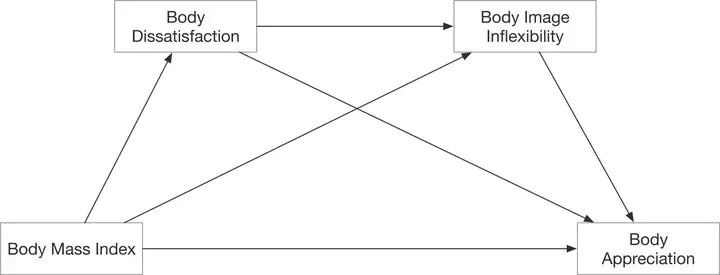Is the relationship between BMI and body appreciation explained by body dissatisfaction and body image inflexibility among older adults? A study among older Chinese men and women

Abstract
A number of previous studies reported a link between body mass index (BMI) and body appreciation; however, many of these studies were conducted in Western countries and addressed younger samples. Older adults, especially in East Asia, remain insufficiently examined. Therefore, the objective of this study was to examine the relationship between BMI and body appreciation and to explore two potential mediators, body dissatisfaction and body image inflexibility, as proposed in a previous meta-analysis. A community-based cross-sectional study was performed among 313 older Chinese men and women (M = 67.90, SD = 7.94). Mediation tests were conducted to examine the roles of body dissatisfaction and body image inflexibility in the relationship between BMI and body appreciation. BMI correlated significantly with body appreciation, body dissatisfaction, and body image inflexibility among older women but did not correlate with body appreciation among older men. Body dissatisfaction and body image inflexibility emerged as significant mediators in the relationship between BMI and body appreciation among older Chinese women. Reducing body dissatisfaction and body image inflexibility may be potential targets for helping older women with high BMI to promote their body appreciation.